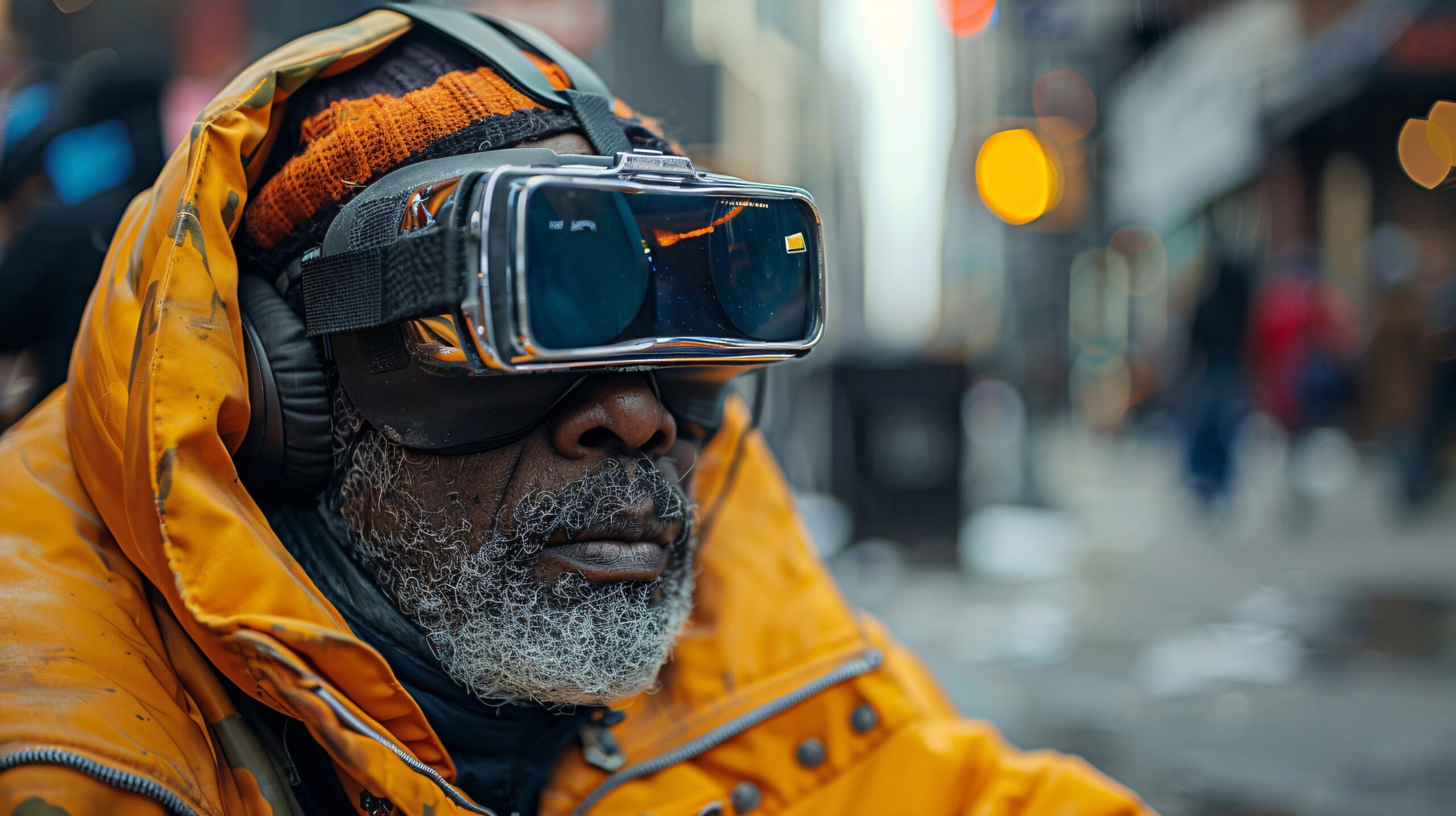latest
Virtual reality project launched to help homeless people improve mental health
Homeless people who are hoping to live independently are being helped by virtual reality technology
“The vast majority of our residents have the potential to live independently one day. Our job is to provide the services that ensure they can confidently complete that journey. Our new VR wellness programme has delivered incredible results that have improved mental health and provided the confidence that people need for a more fulfilling life.” Israa Qaddourah, project manager, Apax
A virtual reality project has been launched that will help homeless people in London to improve their mental health and prepare for independent living.
Residents at the Apax assisted living and supported housing service in Lewisham are using the TRIPP meditation app, which they are accessing through Meta Quest 2 virtual reality headsets, donated by Meta. Apax decided to roll out the technology to 140 residents after a successful eight-week proof-of-concept pilot, which ran between November 2023 and January 2024.
TRIPP, which is powered by artificial intelligence (AI), is a meditation app designed to support people throughout the day with experiences designed for focus, resilience and peace of mind.
According to the charity Crisis, 45% of homeless people, and 80% of rough sleepers, have been diagnosed with a mental health problem.
Apax, a social enterprise offering supported housing services for vulnerable adults who have experienced social exclusion and disadvantages, mental health, or homelessness, reports that TRIPP has helped its residents to reduce stress, manage moods and develop digital skills which could help with independent living. Israa Qaddourah, project manager at Apax, said: “The vast majority of our residents have the potential to live independently one day. Our job is to provide the services that ensure they can confidently complete that journey.
“Our new VR wellness programme has delivered incredible results that have improved mental health and provided the confidence that people need for a more fulfilling life.”
Helping vulnerable people back into society
Era Sahni, director of B2B channel partnerships Reality Labs at Meta, said that Apax “provides valuable assistance to individuals in genuine need”, adding: “We’re happy that Meta Quest is helping vulnerable people find their way back into society”.
Apax collaborated with Insight Enterprises, a systems integration firm, to work out how best to use the hardware, identify the most suitable wellness applications and ensure the smooth roll-out of the technology. Insight organised the supply of headsets, software licensing with Tripp and the required integration for Apax.
Davi de Andrade, services development executive at Insight UK, said: “We had an opportunity to make a real difference to people’s lives. Our experience in spatial computing, coupled with our longstanding work with independent software vendors, meant we could provide an innovative solution to Apax and their clients.”
Plans are now underway to explore the deployment of virtual reality within Apax both to train staff and to improve its clients’ life skills and digital competence.
VR is already being used widely in health care. It has been adopted as a way, for example, of equipping nurses with an overview of what it’s like to work in a prison. It has also been used to support women with pregnancy loss, educate clinicians about dementia, help rehabilitate patients recovering from strokes and prepare surgeons to undertake heart surgery.
The technology has been found to be particularly effective at supporting people with their mental health. One recent study found that VR can help teenagers who are experiencing stress. Another study, published in 2022 and led by researchers at the University of Oxford and Oxford Health NHS Foundation Trust, found that VR can successfully help people recover from challenging mental health problems, including psychosis.
Similarly, a 2023 VR project at St George’s University of London, found that the technology could reduce stress and increase feelings of calm for students. In November 2023, VR technology was approved by the National Institute for Health and Care Excellence for treating agoraphobia.
FCC Insight
We’re pleased to see virtual reality technology being used in such a constructive and innovative way. Virtual reality has been shown to have a beneficial effect in improving people’s mental health, particularly in helping reduce stress and cope with demanding situations. For homeless people experiencing mental illness, the transition from living in a shelter to living independently can be highly challenging, so adopting VR both to equip them with the skills they need and to boost their confidence, is a very positive use of the technology.
